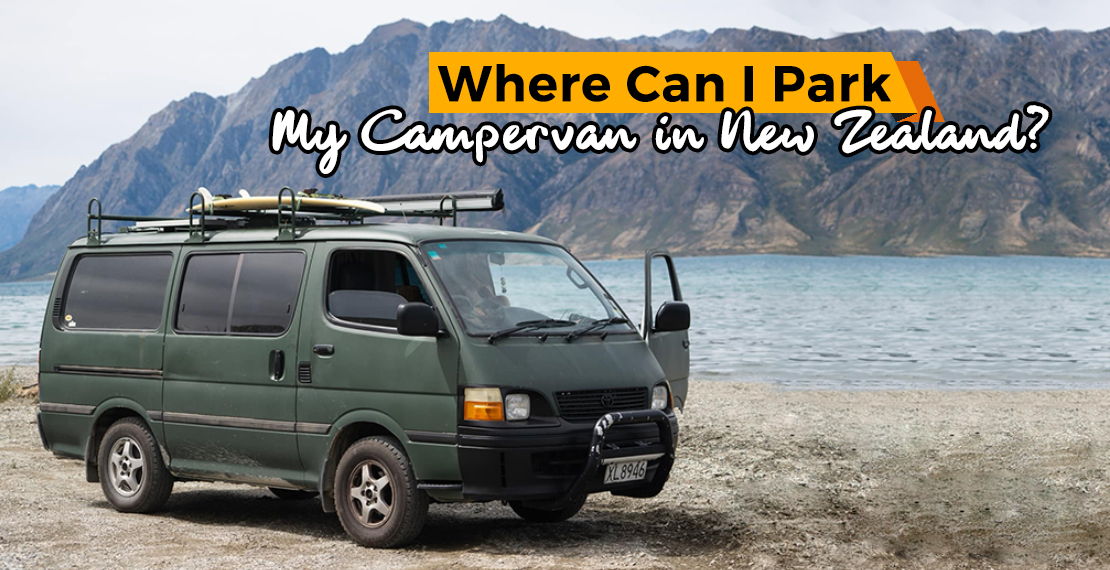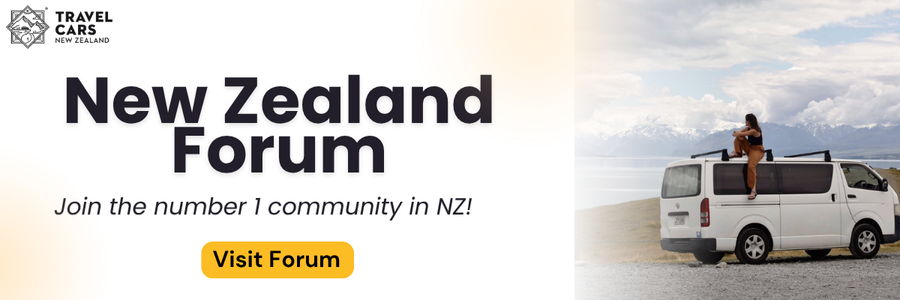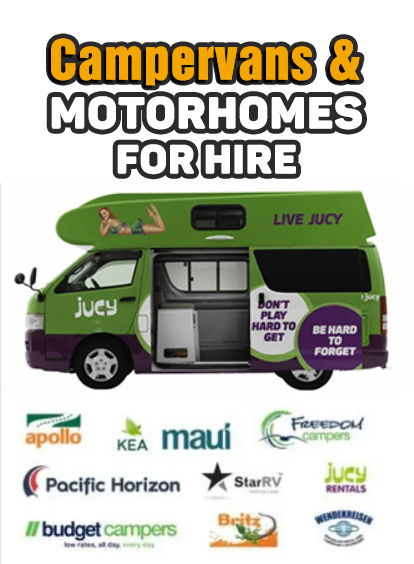✅ Last Update: May 18, 2025 @ 12:50 pm
New Zealand offers many options for parking your campervan, from well-equipped holiday parks and campgrounds to more basic and scenic freedom camping sites.
Knowing where you can park and what each spot offers will help make your trip enjoyable and stress-free.
- In this guide, we will explain everything you need to know to park your campervan in New Zealand, no matter where you plan to go!
When traveling with a campervan in New Zealand, you’ll find several types of camping spots to suit your preferences and needs.
Here are the main types:
| Type | Key Features |
|---|---|
| Holiday Parks | Power, showers, toilets, kitchen, laundry, sometimes pools/playgrounds |
| Campgrounds | Basic to full facilities, toilets, water, cooking areas, some with Wi-Fi |
| Freedom Camping | Scenic spots, self-contained only, little to no facilities |
| DOC Campsites | Toilets, water, basic shelters, located in national parks or nature areas |
| Council Camps | Managed by local councils, facilities vary by location |
2. How to Camp Responsibly in New Zealand
Camping the right way in New Zealand is vital to keep everything looking excellent for the next travelers.
Here are some essential tips to help you camp smart in New Zealand:
- Know the Rules: Learn the rules for camping in the area and get any permits you need.
- Respect Nature: Keep your distance from animals, and take all your trash with you.
- Use Designated Spots: Stay in authorized camping areas to help protect the environment.
- Be Considerate: Keep quiet and give others space at crowded campsites.
- Dispose of Waste Properly: Use toilets when available, and dispose of grey water away from water sources.
- Stay Safe with Fires: Use established fire rings and follow fire bans during dry times.
- Save Water: Use water carefully, and don’t pollute water sources.
- Be Gentle on Nature: Stick to trails and set up camp on durable surfaces.
- Teach and Learn: Share what you know about camping responsibly to help others do the same.
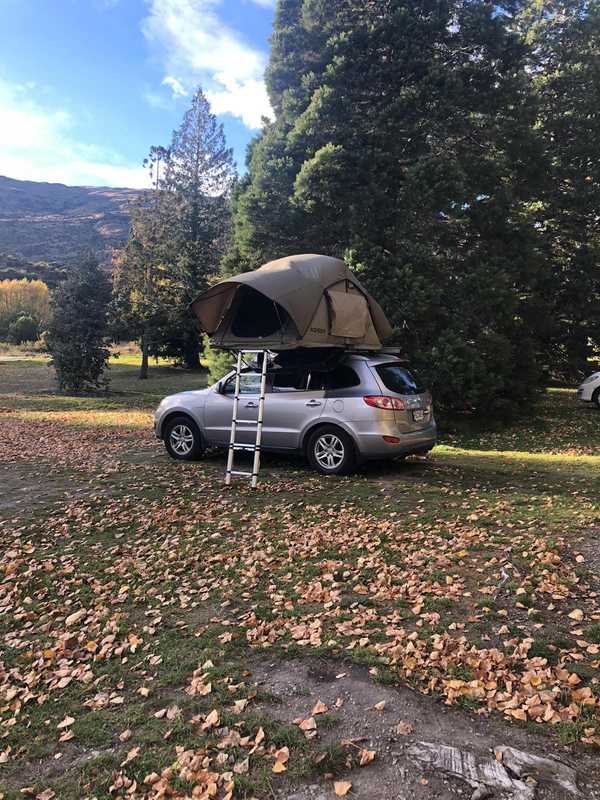
3. Where Can You Stay with Your Campervan or Motorhome?
When traveling with your campervan or motorhome, you have various options for places to stay:
- Holiday Parks: These parks offer power hookups, showers, toilets, and sometimes even pools and playgrounds. They’re great for comfort and convenience.
- Campgrounds: Campgrounds range from basic to comprehensive facilities. They offer toilets, water, showers, cooking areas, and sometimes Wi-Fi. They’re suitable for those seeking a balance between amenities and cost.
- Freedom Camping: For adventurous travelers, freedom camping allows you to stay in scenic and secluded areas with minimal facilities. However, it’s essential to follow local rules and regulations.
- Department of Conservation (DOC) Campsites: Managed by New Zealand’s Department of Conservation, these sites can vary from basic to well-equipped. They’re ideal for nature lovers staying in national parks or conservation areas.
- Regional and District Council Campsites: These sites are managed by local councils and vary in facilities and rules. They offer a variety of experiences depending on the specific site.
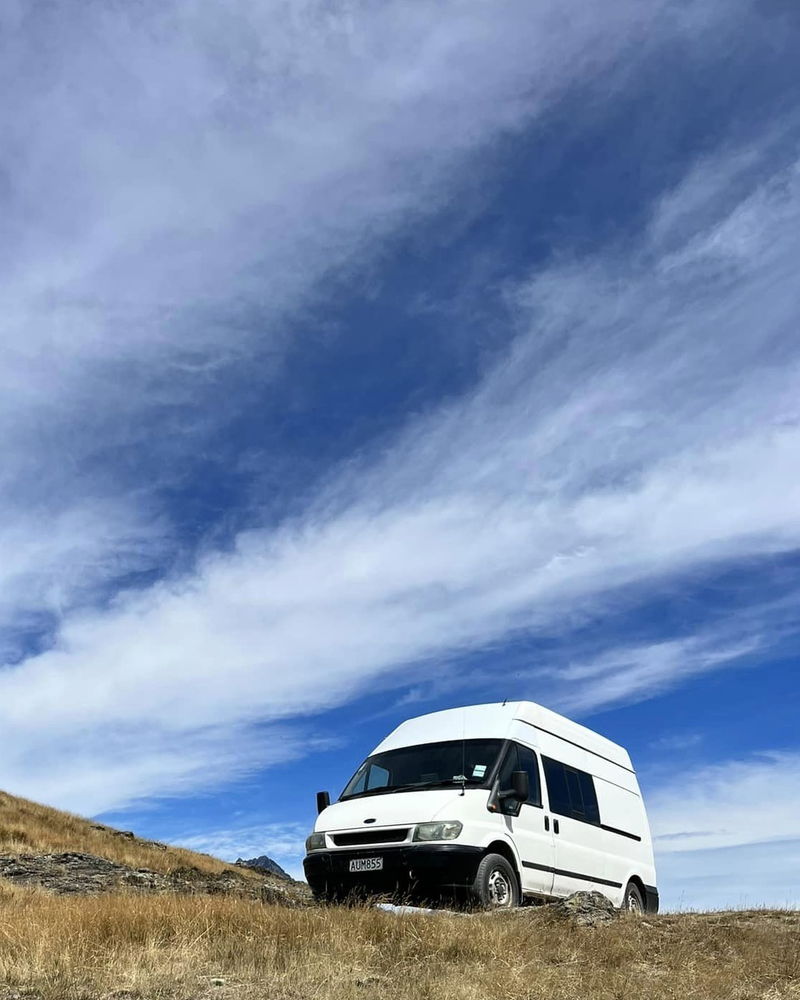
4. Freedom Camping in New Zealand
Freedom camping in New Zealand allows travelers to stay overnight in designated areas without paying camping fees. These sites are often in scenic and remote locations, providing a unique opportunity to immerse yourself in nature.
While freedom camping offers a sense of adventure and freedom, researching and planning are crucial to ensure a safe and enjoyable experience while minimizing your environmental impact.
🔍 For more information about freedom camping, you can read the following article: Freedom Camping in New Zealand
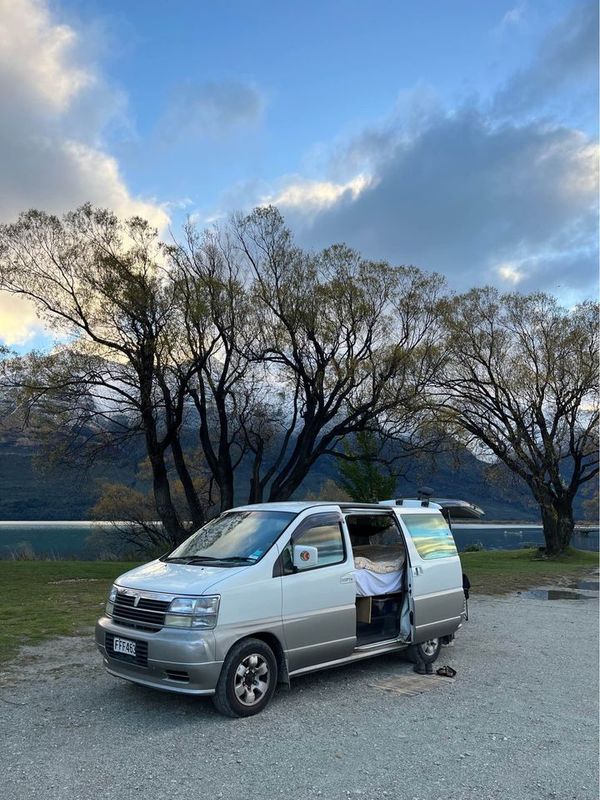
5. Best Campgrounds (by Island)
The most popular way to stay overnight while travelling is by stopping in a campground.
Therefore, we have created a couple of guides depending on which island are you planning your short or long holidays:
6. Using Camping Apps
Camping apps can be beneficial for planning and enjoying your outdoor adventures.
Here’s a brief overview of how you can use them:
- Finding Campsites: Camping apps offer campsite databases, including official campgrounds and free camping spots. You can search for campsites based on location, amenities, and preferences.
- Reviews and Ratings: Many camping apps provide user reviews and ratings for campsites, helping you choose the best based on other campers’ experiences.
- Navigation: Some camping apps offer navigation features to help you find your way to campsites, especially in remote areas where GPS navigation may be unreliable.
- Booking: Certain camping apps allow you to book campsites directly through the app, streamlining the reservation process and ensuring a spot is secured in advance.
- Offline Access: For areas with limited internet connectivity, some camping apps offer offline access to maps, campsite information, and other essential features, allowing you to plan and navigate even without a data connection.
- Safety Information: Your safety is a top priority. Camping apps are equipped with safety features such as weather forecasts, emergency contacts, and tips for staying safe in the outdoors, ensuring you’re well-prepared for any situation.
🚐 For additional information about camping in New Zealand, we have created the following guide: Campervanning in New Zealand | The Ultimate Guide
🚐 Parking Your Campervan (by location)
Depending where you are planning to stop, here are some guides about specific parking spots depending on the city or area you’re visiting.
🧑💻 FAQs about Parking a Campervan in New Zealand
Overnight parking on the side of the road is generally not permitted in New Zealand, except in designated areas with signage indicating overnight camping is allowed.
When camping in New Zealand, it’s essential to dispose of waste properly. Use designated waste disposal facilities when available, and if freedom camping, pack out all your trash and dispose of it responsibly.
There may be restrictions on the size of campervans allowed in certain areas, particularly in national parks and conservation areas with narrow or steep roads.
It’s advisable to book campsites in advance, especially during peak seasons, to ensure availability. However, some campsites may allow walk-in guests, particularly during off-peak times.
Camping in national parks often requires permits and may have specific rules regarding campfires, waste disposal, and wildlife interaction.
Make sure to familiarize yourself with the rules and regulations for each park you plan to visit.



